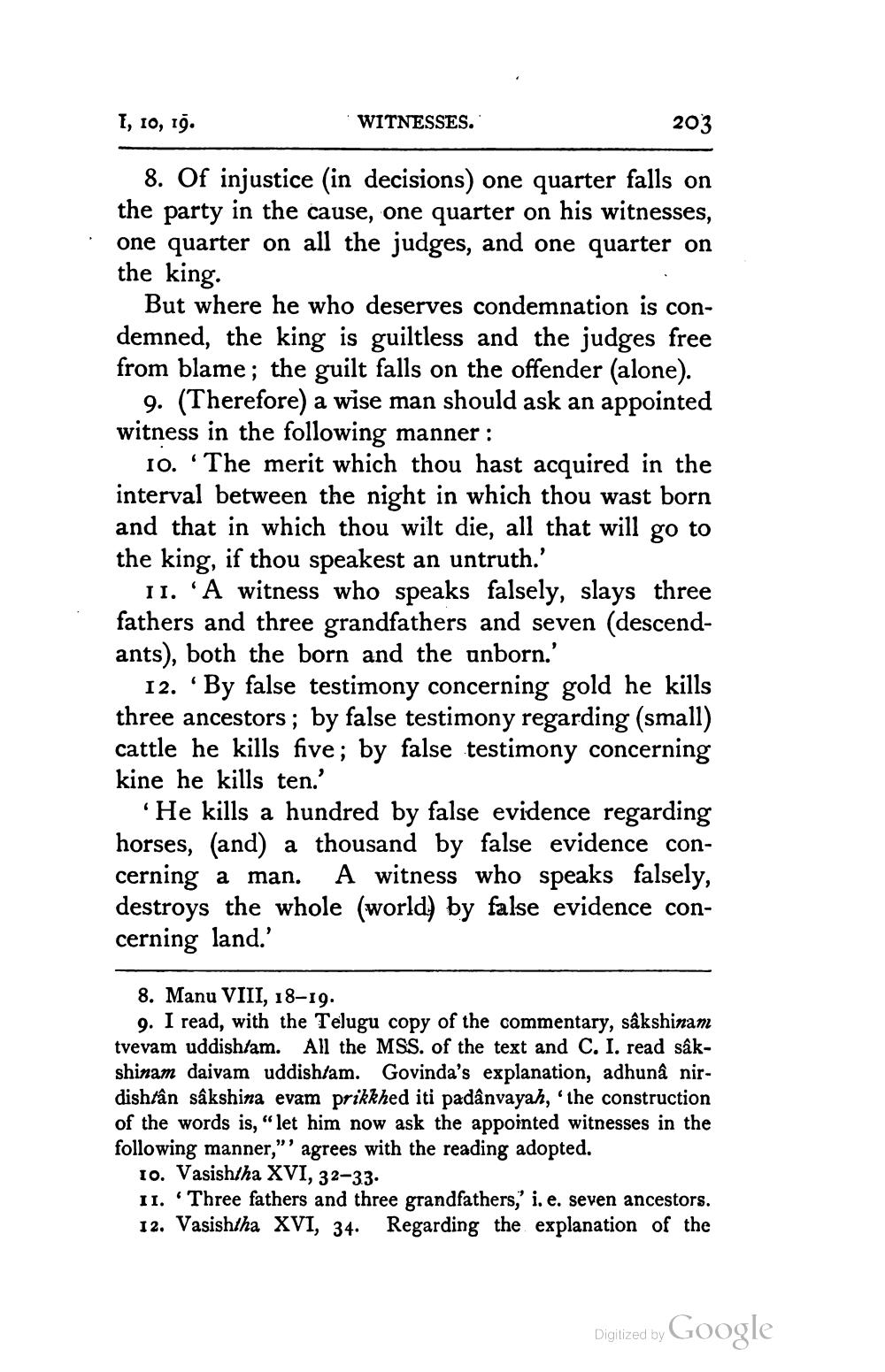________________
I, 10, 19.
WITNESSES.
203
8. Of injustice (in decisions) one quarter falls on the party in the cause, one quarter on his witnesses, one quarter on all the judges, and one quarter on the king.
But where he who deserves condemnation is condemned, the king is guiltless and the judges free from blame; the guilt falls on the offender (alone).
9. (Therefore) a wise man should ask an appointed witness in the following manner :
10. “The merit which thou hast acquired in the interval between the night in which thou wast born and that in which thou wilt die, all that will go to the king, if thou speakest an untruth.'
11. 'A witness who speaks falsely, slays three fathers and three grandfathers and seven (descendants), both the born and the unborn.'
12. 'By false testimony concerning gold he kills three ancestors; by false testimony regarding (small) cattle he kills five; by false testimony concerning kine he kills ten.'
'He kills a hundred by false evidence regarding horses, (and) a thousand by false evidence concerning a man. A witness who speaks falsely, destroys the whole (world) by false evidence concerning land.'
8. Manu VIII, 18-19.
9. I read, with the Telugu copy of the commentary, sâkshinam tvevam uddishtam. All the MSS. of the text and C. I. read sâkshinam daivam uddishłam. Govinda's explanation, adhuna nirdishtân sâkshina evam prikkhed iti padânvayah, the construction of the words is, “let him now ask the appointed witnesses in the following manner,”' agrees with the reading adopted.
10. Vasishtha XVI, 32-33. II. Three fathers and three grandfathers,' i. e, seven ancestors. 12. Vasishtha XVI, 34. Regarding the explanation of the
Digitized by Google




